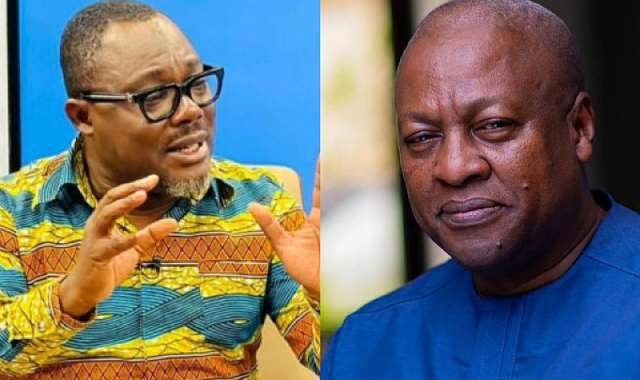Professor Ransford Gyampo, a prominent political science lecturer at the University of Ghana, has publicly challenged President John Dramani Mahama’s decision to reassess and potentially continue the National Cathedral project, a venture initiated by former President Nana Akufo-Addo. Gyampo’s central argument revolves around the premise that the cathedral was a personal pledge made by Akufo-Addo to God, not a national imperative. He questions Mahama’s motivation for continuing the project, pointedly asking whether Mahama himself had made a similar divine promise or if he was obligated to fulfill his predecessor’s personal commitments. Gyampo contends that Mahama’s electoral mandate stems from the Ghanaian people, not from inheriting unfinished personal projects of past administrations.
Gyampo emphasizes the incongruity of pursuing a costly cathedral project amidst Ghana’s prevailing economic difficulties. He suggests that allocating resources to such a venture would be a misdirection of public funds, especially given the numerous pressing societal needs demanding attention. He advocates for a more prudent approach, urging Mahama to halt the project, fill the existing excavation – metaphorically representing the financial drain – and utilize Akufo-Addo’s end-of-service benefits to offset some of the incurred costs. He further proposes holding those responsible for potential financial mismanagement accountable for the project’s controversial financial history.
President Mahama’s recent pronouncements regarding the National Cathedral have sparked this debate. During a national prayer service, Mahama expressed reservations about the project’s cost and funding mechanisms. While acknowledging the desire for its completion, he stressed the importance of achieving it at a “reasonable cost” and without relying on state funds. This implies a potential shift in the project’s funding strategy, possibly leaning towards private donations and fundraising initiatives. Mahama’s statements suggest a willingness to continue the project, albeit with a revised approach to its financing and execution.
The National Cathedral project, since its inception under Akufo-Addo’s administration, has been mired in controversy. Critics have questioned the project’s prioritization, particularly in light of Ghana’s economic challenges. The allocation of public funds to the project has drawn significant public scrutiny, with many arguing that these resources could be better utilized to address pressing social and economic needs such as healthcare, education, and infrastructure development. The project’s perceived lack of transparency and the escalating costs have further fueled public discontent.
Gyampo’s open letter reflects the broader public debate surrounding the National Cathedral project. It articulates the concerns of many who question the wisdom of investing significant resources in a grand religious structure while the nation grapples with economic hardships. The letter highlights the tension between fulfilling a predecessor’s personal vision and prioritizing the immediate needs of the citizenry. It also underscores the importance of accountability and transparency in government spending, especially on projects of this magnitude.
The future of the National Cathedral project hangs in the balance, caught between competing visions and priorities. Mahama’s intention to reassess the project indicates a potential middle ground: acknowledging the desire for its completion while seeking a more financially responsible and publicly acceptable approach. However, the project remains a sensitive issue, and its ultimate fate will depend on navigating the complex interplay of religious aspirations, economic realities, and public opinion. The ongoing debate highlights the challenges inherent in balancing symbolic gestures with practical governance, particularly in a context of limited resources and competing societal needs.


